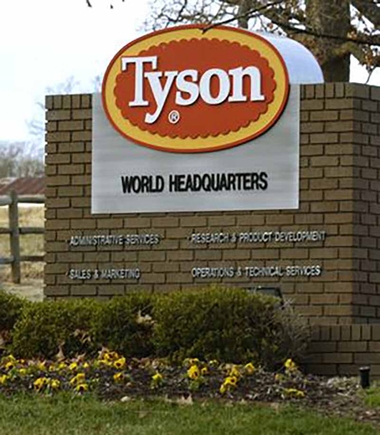Arkansas' small-scale food producers struggle to make profit

LITTLE ROCK, Ark. (AP) — Small-scale food producers in Arkansas say they are struggling to make a profit as the infrastructure they need disappears.
Nationally, food marketed as local can fetch higher prices on grocery store shelves. A pound of chicken breast costs an average of $2.86, according to weekly U.S. Department of Agriculture retail reports. A pound of local chicken breast averages $8.02.
But even with charging higher prices, local producers are finding it difficult to increase margins, the Arkansas Democrat-Gazette reported (http://bit.ly/21BovCk ).
Wes Ward, Arkansas' secretary of agriculture, said the state is trying to promote locally produced food and people are willing to spend more for products grown in Arkansas.
"It's a national and state trend for people who want to know more about where their food is coming from," he said. "It's very exciting to watch that happen."
Meat must be processed at a USDA-approved slaughterhouse to be sold commercially across state lines. Farmers also can use custom slaughterhouses to process animals, but large quantities of it cannot be labeled and sold.
"Places that will process a small farmer's poultry that are USDA are few and far between," said C.J. Sentell, production manager of Grass Roots Farmers' Cooperative. "It's a key piece of infrastructure that's missing from the local-food scene."
Fewer but larger federal slaughterhouses are now the norm. There are about 60 USDA-approved slaughter and processing facilities in Arkansas. More than half are owned by large state or national food corporations. At least 18 are owned by Tyson Foods.
Farmers can rent out slaughterhouses and processing facilities that belong to meat producers like Tyson or Simmons Foods, which also owns several facilities in the state. But Sentell said these facilities, which can process large numbers of animals, are too expensive for most small-scale farmers.
"We are just not that big, and don't want to be that big," he said.
The USDA lists Arkansas as one of the areas where there is a lack of small slaughter facilities in relation to large numbers of small farms.
Copyright 2016 The Associated Press. All rights reserved. This material may not be published, broadcast, rewritten or redistributed.
The Gayly - 2/28/2016 @ 6:12 p.m. CST





